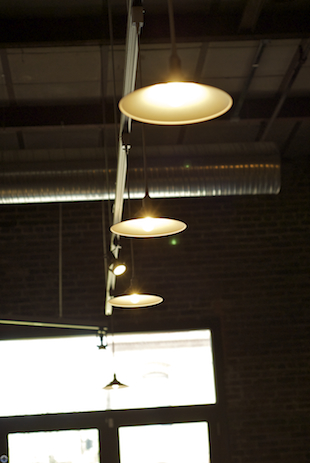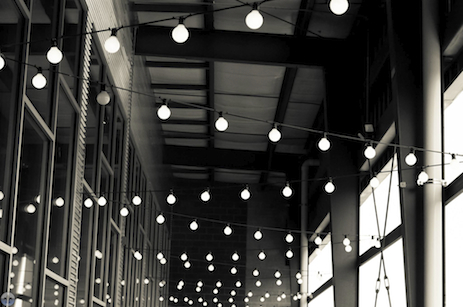photograph by Theresa Harter
Committed to sustainability practices and supporting the local business community, Urban Chestnut Brewery is the city’s largest, locally-owned brewery. Their recently opened brew plant and bierhall, on Manchester, is an expansive, state-of-the-art facility that does a lot to rekindle St. Louis’ past label as a beer-brewing mecca. Oh, and have you tried the beer? It’s amazing!
photograph by Dan Henrichs Photography, St. Louis
photograph by Jason Gray
photograph by Justin Phillips
photograph by Kara Schoen
By the end of the Civil War, over 60 breweries were operating in the city of St. Louis; a testament to the profound cultural impact of the tremendous number of Germans that immigrated to the city, primarily between 1830 and 1850. However, the favorite pastime of these former Europeans was not always widely accepted. The American Protestants viewed drinking as a sinful vice, and worried that an increase in its popularity would lead to the demoralization of society. What’s more, the Germans were largely opposed to slave-owning, a fundamental “right” (and a system with huge monetary and political implications) for many already established St. Louisans. As the result, anti-immigrant/Nativist aggression propelled the city into violence several times in the years leading up to the Civil War.
After Prohibition, the negative biases toward beer and spirit consumption were largely alleviated, but for the majority of breweries in St. Louis, the long temperance movement proved too much to bear. Still, the most prominent brewery to survive, Anheuser-Busch, grew to become not only the largest brewer in the city, but also in the United States (and later, the world). Subsequently, consumer trends in St. Louis moved away from the brewery around the corner, especially as communities began to expand westward and urban population declined. For many decades, corporate owned, mass-industrialized beer production reigned.
photograph by Kara Schoen
photograph by Theresa Harter
photograph by Jason Gray
photograph by Jason Gray
photograph by Dan Henrichs Photography, St. Louis
In the 1980’s, small or limited production beer began to make a comeback in the United States (a movement of continuous, exponential growth aided by the deregulation of homebrewing). In the 1990’s, terms like “microbrewery”, “craft brewing”, and “nanobreweries” achieved buzz status, and represented a preference of beer drinkers for a more traditional, well-executed beverage; one that offered a more nuanced drinking experience. Today, the Brewer’s Association regulates the terminology associated with the smaller brewing businesses, and assigns specific production limits based on category.
photograph by Jason Gray
photograph by Janet Henrichs
photograph by Jason Gray
photograph by Dan Henrichs Photography, St. Louis
Despite the national craft beer movement, in St. Louis, it seemed that residents had become largely resigned to the blandness of factory beer. After all, Anheuser-Busch was the largest brewer in the world, and yet it was still locally owned. Beyond the local economy, the Busch family had contributed to culture in St. Louis in many ways that, in turn, endeared the city to its beer. However, much of that allegiance collapsed in 2008 when the Belgian-Brazilian company, InBev, acquired Anheuser-Busch in a corporate takeover. From this moment on, the flood gates were open for craft brewers in St. Louis, and small breweries once again began to dot the city landscape (a fortuitous turn for beer lovers!). Enter: Urban Chestnut Brewery.
photograph by Kara Schoen
photograph by Dan Henrichs Photography, St. Louis
Urban Chestnut was founded in 2011 upon the philosophy of “beer divergency”, a unique concept that places equal significance upon the American craft beer movement (the Revolution Series beers) and the time-honored approaches of traditional European brewing (the Reverence Series beers). Co-owners, David Wolfe and Florian Kuplent have built on their brewing innovation with a sustainable mindset that includes green strategies for water conservation, recycling, composting, spent grain donation, harvesting solar power, indoor bicycle-parking, and more.
For beer lovers, Urban Chestnut’s original brewery and biergarten in Midtown was already a mecca, but in February of 2014, a portion of that success and devotion took the form of its massive, new brewery and bierhall (the site pictured) in the Forest Park Southeast neighborhood, proving that two is indeed better than one. Now, as the city’s largest craft brewer, Florian Kuplent (Urban Chestnut’s Brewmaster) has creative room to roam, and grand business expectations to meet. He is part of a growing group of business owners and brewers that are making St. Louis an exciting city for beer, and given the scale of his operation, quite a lot now rests on he and his partner’s shoulders. We at Photo Flood Saint Louis believe that Urban Chestnut has what it takes to exceed the increased demand; after all, have you had the beer?
photograph by Janet Henrichs
photograph by Jason Gray
photograph by Justin Phillips
photograph by Kara Schoen



























